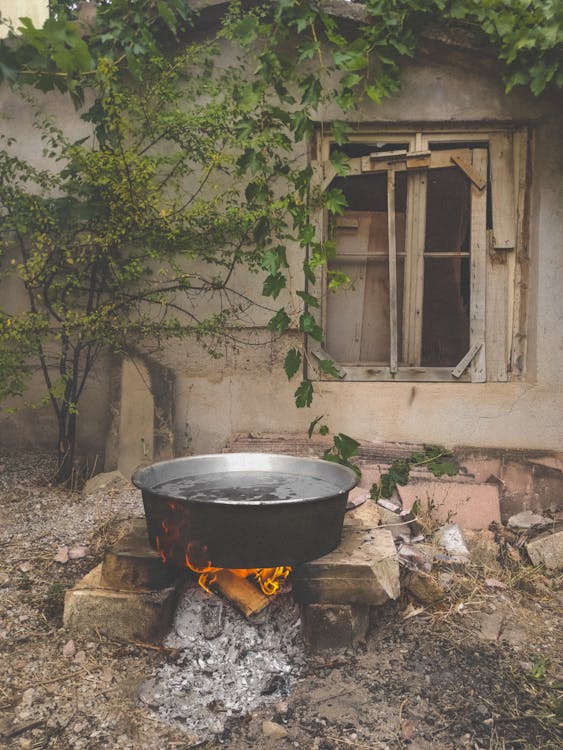With climate change on every concerned citizen’s mind, living off the grid is becoming the new norm.
Sustainability concerns aside, most homeowners have more practical reasons for making this move. Electricity bills have skyrocketed, along with the prices of daily goods like food, medicine, and hygiene products. Fuel costs are not seeing a drop anytime soon, and inflation still runs unchecked. In this combination of problems, it’s natural to want to break away and become self-sufficient.
Thankfully, modern technology has made it much easier for people to transition out of regular community systems. That’s mostly thanks to new ways to tap into natural resources like wind and sun to produce energy for home use. In exchange for a considerable upfront investment, you and your loved ones get to live cheaply while reducing your environmental impact.
But why does energy matter so much? It’s the medium through which people perform many tasks vital to daily living, like cooking and cleaning. Getting hot water is another one, as it’s a key step for preparing certain kinds of food and doing basic sanitation.
It’s possible to use alternative energy to heat water. All you need to worry about is whether your plumbing is safe and effective enough to provide the clean water you need. Reach out to companies like 23hourplumbing.com.au and similar ones in your area to check if your water system suits your off-grid life.
What options do you have for heating water off-grid? Here are some solutions you should consider:
1. Biogas Water Heaters
Biogas mostly consists of methane produced from decomposing organic matter. The resulting fuel burns cleanly like natural gas. Many green households already use this to heat water, among many other tasks at home.
You can buy biogas from retailers. However, you can also set up biogas production systems in your own home to get a regular supply.
To do this, you first need to have a buildup of organic waste. The ideal yields come from droppings from domestic animals like chickens, food waste, plant parts, and paper. Never use biohazards like blood, as you may end up spreading infection.
If you’re setting up a system like this, make sure you consult experts to get things right. Organic gases are usually dangerous to handle on their own.
Luckily, most natural gas appliances can switch to biogas without a problem. It’s also easy to combine other off-grid energy sources with it. For instance, biogas can be an excellent backup if you’re using solar energy and your batteries don’t have a large capacity.
2. Solar Water Heaters
Solar power is one of the most preferred energy sources for living off-grid. All you need are solar panels to tap into the sun’s energy. Recent developments have allowed solar users to store energy on rechargeable batteries. This ensures a consistent supply of energy at any time of day.
You’ll need to integrate your water heating systems into the solar panels to get the power for heating. That way, you can easily enjoy warm showers if you live in an area with plenty of sunshine and your panels are high-capacity.
Alternatively, you can get solar water heaters. These consist of a series of pipes that directly absorb the sun’s energy and store the heated water in a sizable drum. They’re less expensive than installing standard solar panels and are great if you want to heat water.
3. Wood Heaters
Using wood is one of the oldest tricks in the book for living off-grid. It’s effective for heating water and could even be a great way to heat your home.
You can build a homemade heater using a 55-gallon barrel, though stainless-steel boilers tend to be more effective. You place the wood beneath the drum and light it, letting the naked flame transfer heat into the drum. Make sure to insulate it properly to conserve as much heat as possible.
Barrel-type water heaters heat dozens or hundreds of liters at once. This makes them perfect for large families where you need a significant amount of hot water. If your hot water needs are minimal, you can pass water through steel pipes and heat them beneath the coils, instead.
4. Propane Water Heaters
Like biogas water heaters, propane heaters rely on gas to heat water. It’s another efficient way for off-grid folks to generate heat.
You can easily find propane tank water heaters on the affordable side, even in local shops. Most distributors also offer a refill service where they can replenish your tank at your home for a fee.
However, propane gas is also becoming expensive due to its high demand. If you’re already using it, you might want to slow down.
Get Hot Water The Smart Way
Living off-grid can be as comfortable as living in a community as long as you take the right steps. For water heating solutions, compare your available options first and see if your current setup can sustain them. Whichever you choose, talk to professionals to know if you’re setting it up right.
